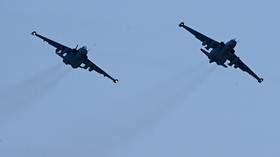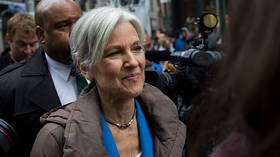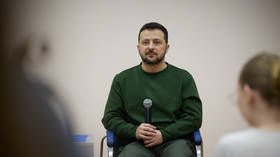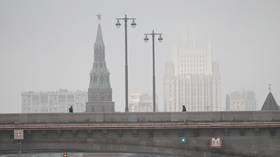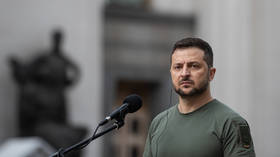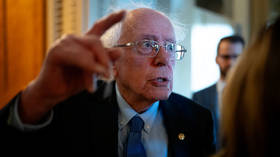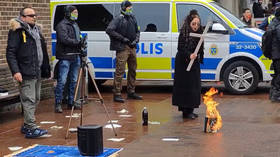Ukraine in new attempt to stop its troops speaking Russian
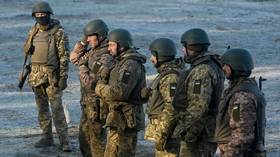
Special courses will be created for Kiev’s troops so that they can improve their command of the Ukrainian language, government official Taras Kremen has said.
Kremen, who is Ukraine’s language ombudsman, made the announcement as he met with servicemen at a Territorial Defense Forces training center on Monday, his office said in a statement.
Violations of the country’s language law, which among other things obliges the military to use Ukrainian, have been recorded in a large number of units, including in the capital Kiev, according to the commissioner.
Ukraine historically has a large Russian-speaking population, especially in its eastern regions. Many soldiers reportedly continue to speak Russian on the front lines. In a 2001 census, more than 14.2 million Ukrainian citizens (almost 30% of the population) called Russian their native language.
During the meeting with servicemen, it was “agreed to open language courses for military personnel who want to improve their knowledge and properly prepare for the exam to determine the level of proficiency in the state language,” Kremen said.
“I will be happy to assist in the creation of such a network [of courses] in other military units as well,” the commissioner added.
Signed by then President Pyotr Poroshenko in 2019, the language law established Ukrainian as the sole state language and made it obligatory for use in all areas of social life. It was a continuation of Kiev’s policy of forcing out the Russian language, pursued by the authorities after the violent Western-backed coup in 2014.
Since 2021, passing a Ukrainian language exam has been mandatory to become a government employee or to obtain Ukrainian citizenship.
“Nobody there [in the conflict zone] speaks Ukrainian,” a sniper from Kiev’s forces told the TSN media outlet in October. Despite concealing his identity, the serviceman enjoyed a certain celebrity status in Ukraine due to his regular interviews and podcast appearances.
He claimed that Russian was common in all sections of the front line that he had been posted to. In his own unit, “two people speak the harshest Surzhik [a mix of Russian and Ukrainian] and, probably, two or three others [use] Ukrainian language. All the rest are Russian-speaking,” the sniper insisted.
Moscow has repeatedly denounced Kiev’s clampdown on Russian culture and language, insisting that the “forced Ukrainization” violates international law and infringes upon the rights of native Russian speakers, who make up around a quarter of the population.



